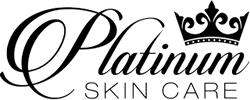Why do I have Acne? Unraveling Causes, Treatments, and Prevention
Posted by Jennifer Tilney on Oct 01, 2023
Understanding Acne's Root Causes
Ever questioned why acne is a foe for some but not others?
Unraveling acne's mysteries isn't just about beauty—it's a journey of self-confidence. My personal battle with acne inspired my extensive research and commitment to product development at Platinum Skin Care Inc.
Acne is a product of genetics. Although it might not be evident in immediate family members, a relative from previous generations might have passed on this trait.
Our bodies all produce the same sebum, testosterone, and hormones. These aren't the culprits. The real challenge is a unique vulnerability known as "retention hyperkeratosis." Here, dead cells in the pores amass at a rate 4-5 times faster than average, leading to pimples.
Once acne forms, our bodies release enzymes to tackle the impaction. However, these enzymes can't dissolve the keratin buildup. They end up weakening the follicular wall, which can lead to potential scarring. In essence, those susceptible to acne typically have fragile follicular walls and an overabundance of deep pore skin build-up.
Table of Contents
Effective Acne Control Products
To combat recurring acne, we must address the excess build-up in the follicles. Here are some game-changing products to consider:
- Vitamin A (Retinol or Retin A)
- Alpha Hydroxy acids (Salicylic or TCA)
- Benzoyl Peroxide (a source of liquid oxygen)
- Sulfur
These treatments may lead to light flaking, which is desired! Aim for controlled acne with minimal daily flaking. For resistant acne, seeking prescription solutions like Tetracycline or Accutane could be necessary.
Guidelines for Topical Treatments
Instead of merely focusing on active pimples, prioritize treating areas prone to acne. New acne can form up to 90 days before becoming visible. Knowing acne's potential pattern—nose, forehead, and chin for younger individuals and broader face areas for adults—helps determine treatment application zones.
It is of the UTMOST importance to always treat ANYWHERE you are prone to acne. Acne is busy forming new blemishes for a good 90 days before you can actually SEE and FEEL it! You have to treat THOSE! So basically most people will be applying their topicals to the majority of their face/neck.
Apply your treatment products everywhere, everyday.
Mistakes to Avoid in Acne Management
- Sun Exposure: Harmful UV rays can intensify skin irritation.
- Constant Friction: Activities like nervous rubbing can exacerbate acne. As having constant friction on certain spots, you are aggravating the clogged pores deep in the skin and are causing them to rupture.
- Incorrect Pimple Popping: Ensure hygiene and avoid unnecessary damage. Here’s how you can do it correctly:
- Never squeeze a pimple that does not have a white center!
- Never just squeeze the pimple without FIRST popping a small hole with a sterilized needle (or other such instrument). **If you pop a pimple by simply applying pressure until it bursts, you will rupture the follicular wall beneath the skin. This then allows the infection to seep out inside your skin causing inflammation and even MORE pimples!
- Dietary Triggers: High iodine or kelp can spur acne. You will find these items in excess in many vitamins. Large enough amounts can cause acne in ANYone, so since you are succeptable steer clear of them.
- Steroids: Only use if medically necessary.
- Birth Control Review: Some can worsen acne. Many are great for acne and just as many are terrible. Estrogen based pills have the most clearing effect.
- Cosmetic Check: Avoid comedogenic ingredients and stick to mineral-based makeup.
For an exhaustive understanding, consider reading "Acne Rx" by Dr. James E. Fulton Jr., an advocate for the exfoliation method.
My Personalized Acne Treatment Routine
Based on personal experience, using an exfoliating cleanser for acne-prone skin (like the AB Cleanser) proves effective. Alternating treatments every evening—RetinA, Benzyl Peroxide, and Retinol .10%—can be beneficial. During the day, using Acne Microdermabrasion cream or a facial brush can help. Applying Vitamin C, Hyaluronic Acid, and Emu combination offers hydration without blocking pores. Remember to top it off with SPF 30 for protection.
Despite clear skin, consistency in product usage is key. Acne might be lurking beneath the surface, and it's essential to be proactive.
My final advice is: Even when your skin is clear - DO NOT STOP USING ALL OF THE PRODUCTS! You must continue with them every single day. After several months you can start to SLOWLY back off with your products (think about using your treatments every other day instead of every day). Each time you start to back off - wait 90 days before you attempt to back off more! Like I said before, it takes 90 days for a pimple to work its way to the surface, so you do not want to feel like your skin is all better - when you are just having a clear moment, and later you will see what was REALLY still happening and end up with another break-out. Go slowly.
Tackling acne requires a holistic approach—from understanding its genetic roots to leveraging effective treatments. Consistency, awareness, and persistence pave the way for healthier skin.



